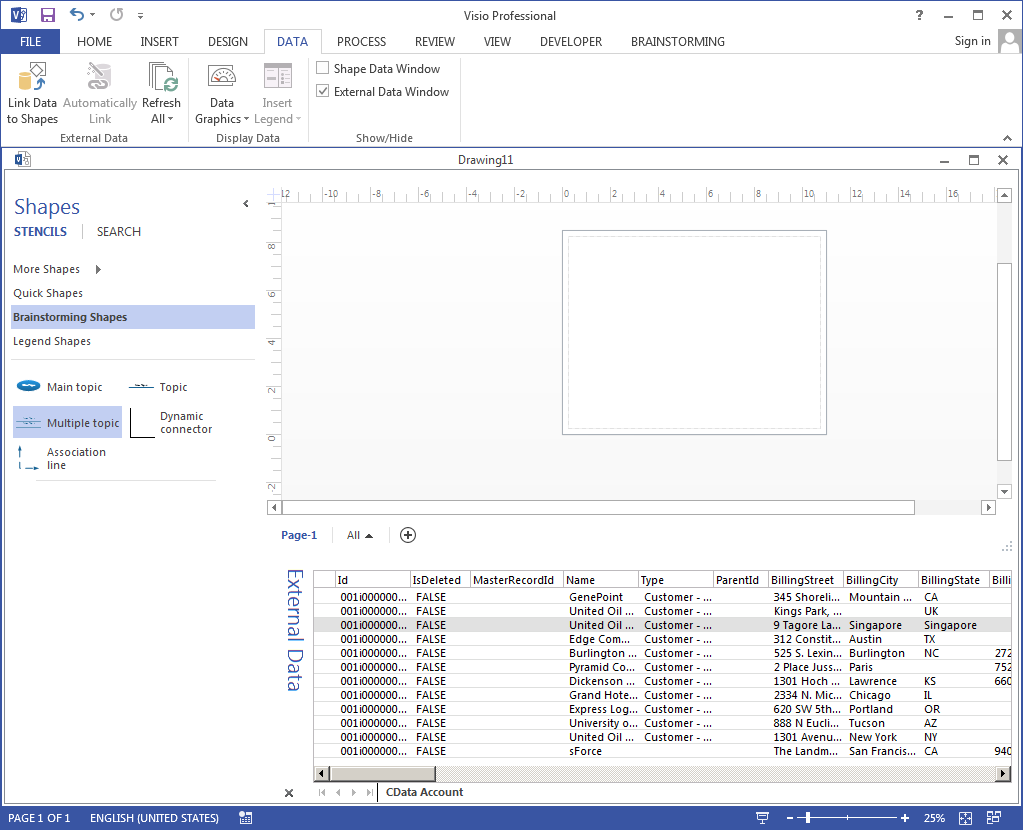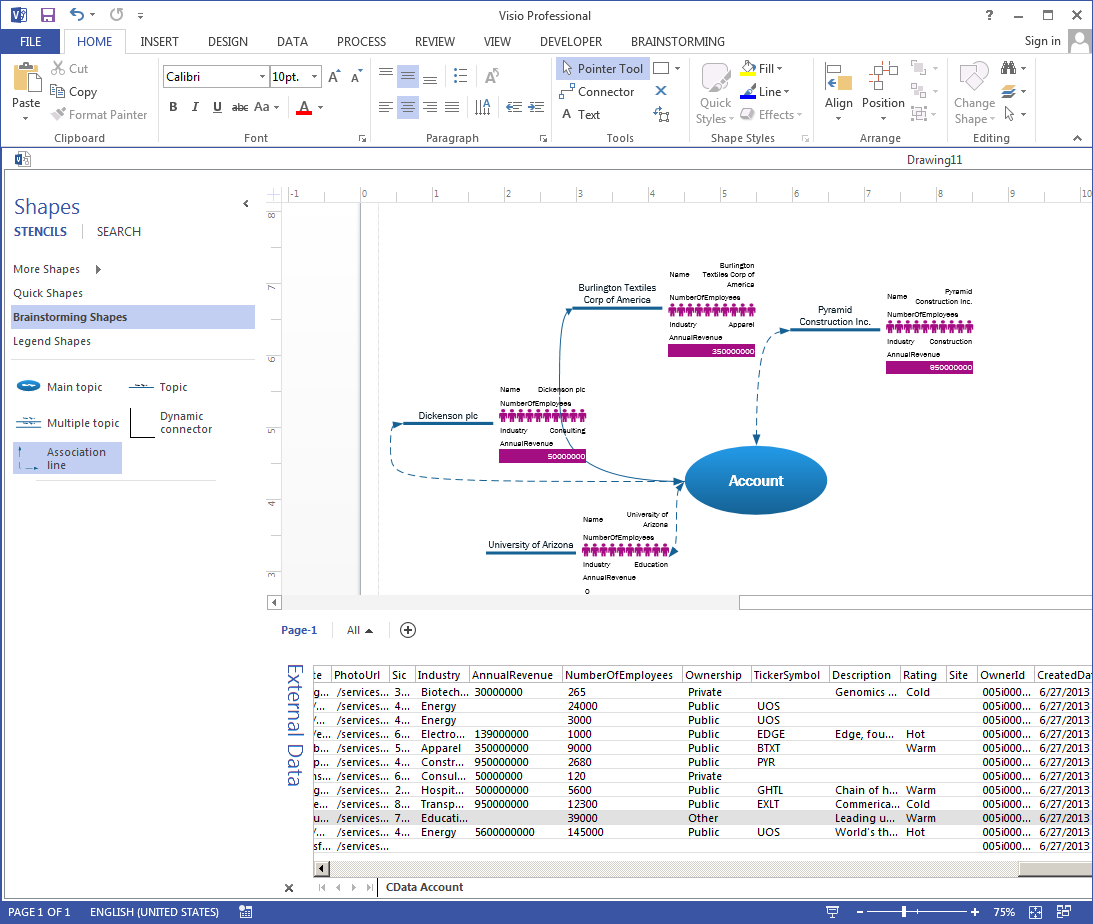Discover how a bimodal integration strategy can address the major data management challenges facing your organization today.
Get the Report →How to create Visio diagrams from LDAP Objects
Automatically update LDAP objects with the changes you make to Visio master shapes.
Automate the process of entering data into Visio diagrams and keeping your diagrams up to date with the CData ODBC Driver for LDAP. The driver surfaces LDAP objects as an ODBC data source that can be accessed by applications with built-in ODBC support like Microsoft Office. This article shows how to create a simple diagram to start brainstorming about Visio projects linked to LDAP objects.
Connect to LDAP as an ODBC Data Source
If you have not already, first specify connection properties in an ODBC DSN (data source name). This is the last step of the driver installation. You can use the Microsoft ODBC Data Source Administrator to create and configure ODBC DSNs.
To establish a connection, the following properties under the Authentication section must be provided:
- Valid User and Password credentials (e.g., Domain\BobF or cn=Bob F,ou=Employees,dc=Domain).
- Server information, including the IP or host name of the Server, as well as the Port.
BaseDN: This will limit the scope of LDAP searches to the height of the distinguished name provided.
Note: Specifying a narrow BaseDN may greatly increase performance; for example, cn=users,dc=domain will only return results contained within cn=users and its children.
Connect LDAP Objects to Diagrams
Follow the steps below to use the Data Selector Wizard to import data into your diagram.
- Open Visio and click File -> New. Open the Brainstorming template.
- On the Data tab, click Link Data to Shapes.
- Select the ODBC option and select ODBC DSN.
- Select the DSN for LDAP, select the table you want to import, and finish the wizard. This article uses User as an example.

Link LDAP Entities to Shapes
Follow the steps below to create a simple diagram that shows how to create shapes from your data, one of the ways to link LDAP entities to shapes:
- Click Brainstorming Shapes and drag a main topic onto the drawing page. Enter User as the text of the main topic.
- Click Topic.
- Select a row in the External Data window and drag it onto the drawing page.
- Right-click the Topic shape and click Data -> Edit Data Graphic.
- Click New Item.
- In the Data Field menu, select a column. In the Displayed As menu, select how to display them.
![A data graphic for a column.]()
- Drag a few other LDAP entities onto the drawing page and add association lines back to the main topic, User. New topics have the same configuration: Numeric columns displayed in data bars stand out in contrast to other User entities.
![Brainstorming with external data. (Salesforce is shown.)]()
You can refresh your diagram from the Data tab, synchronizing your shapes with the external LDAP objects.








